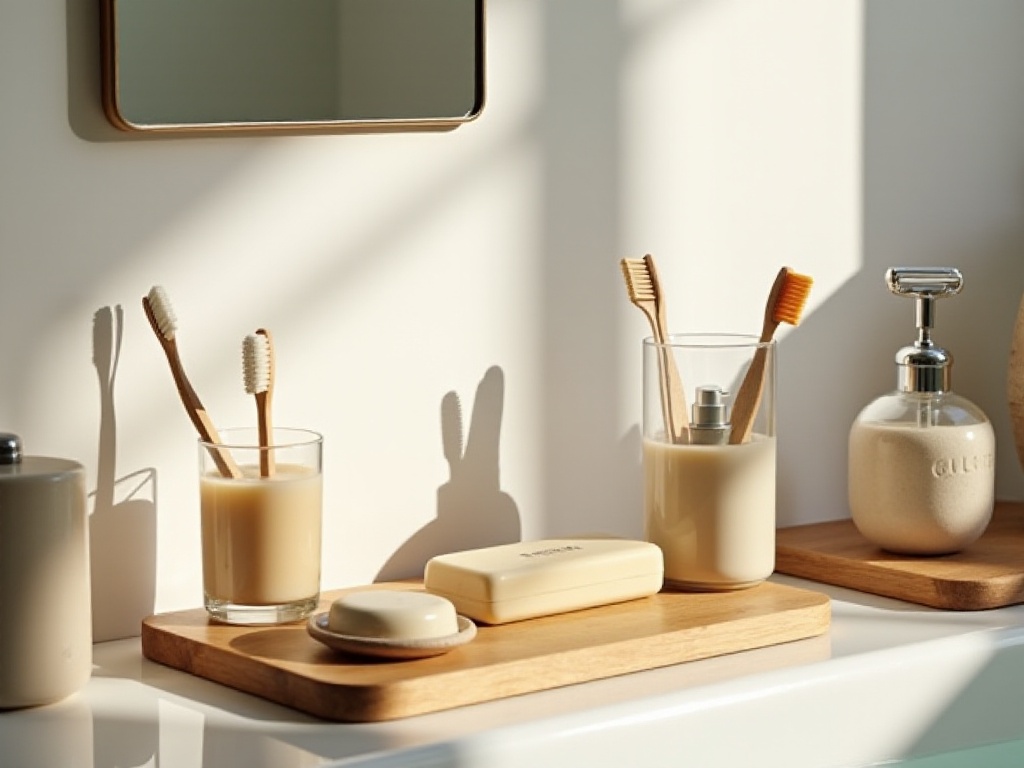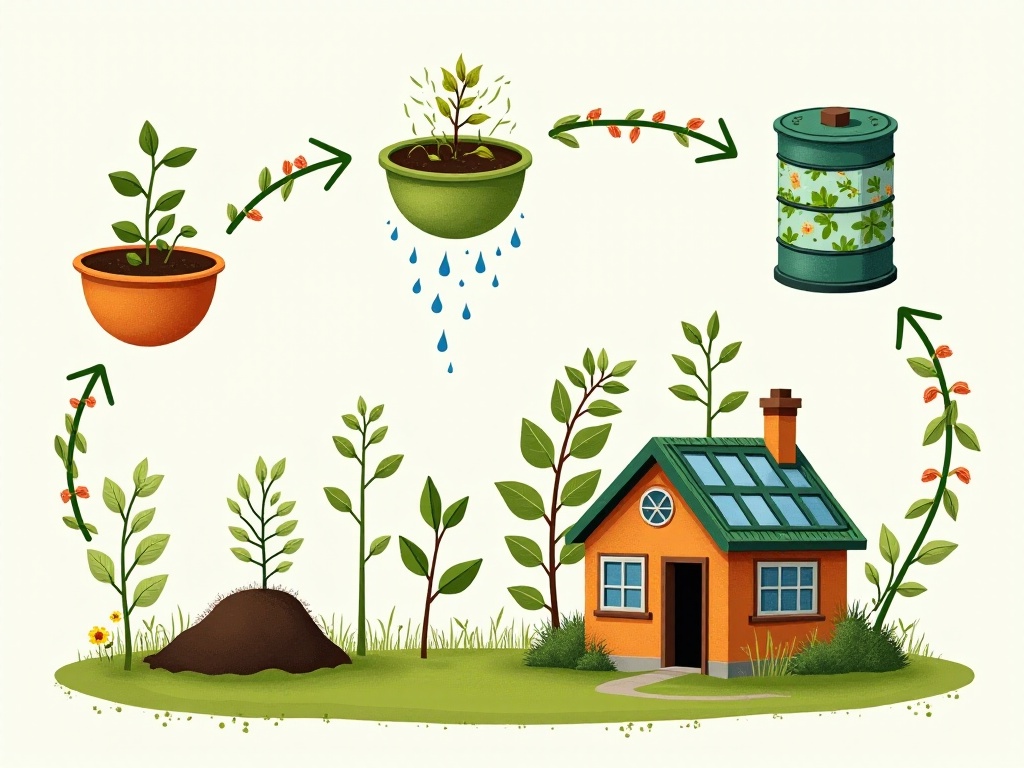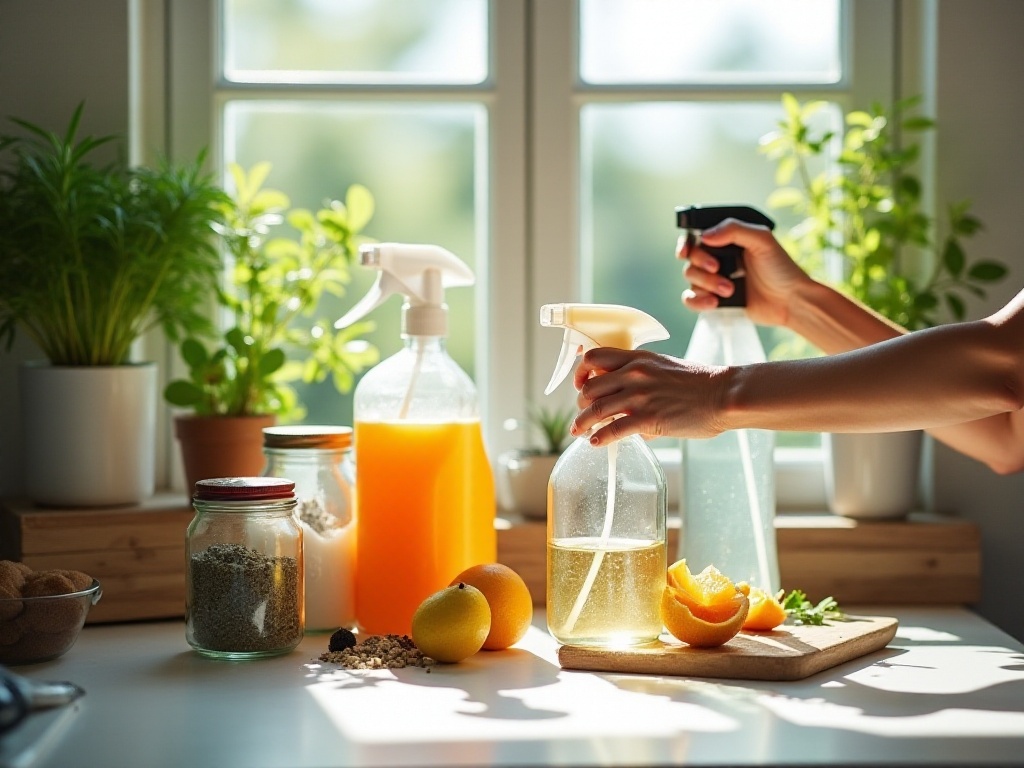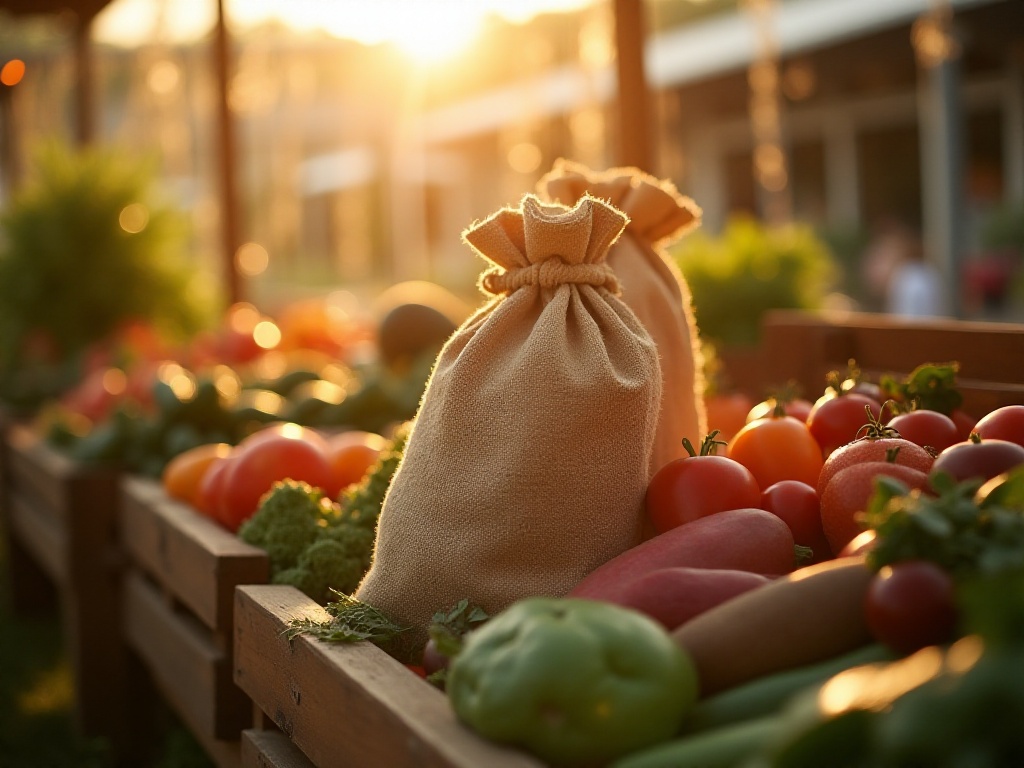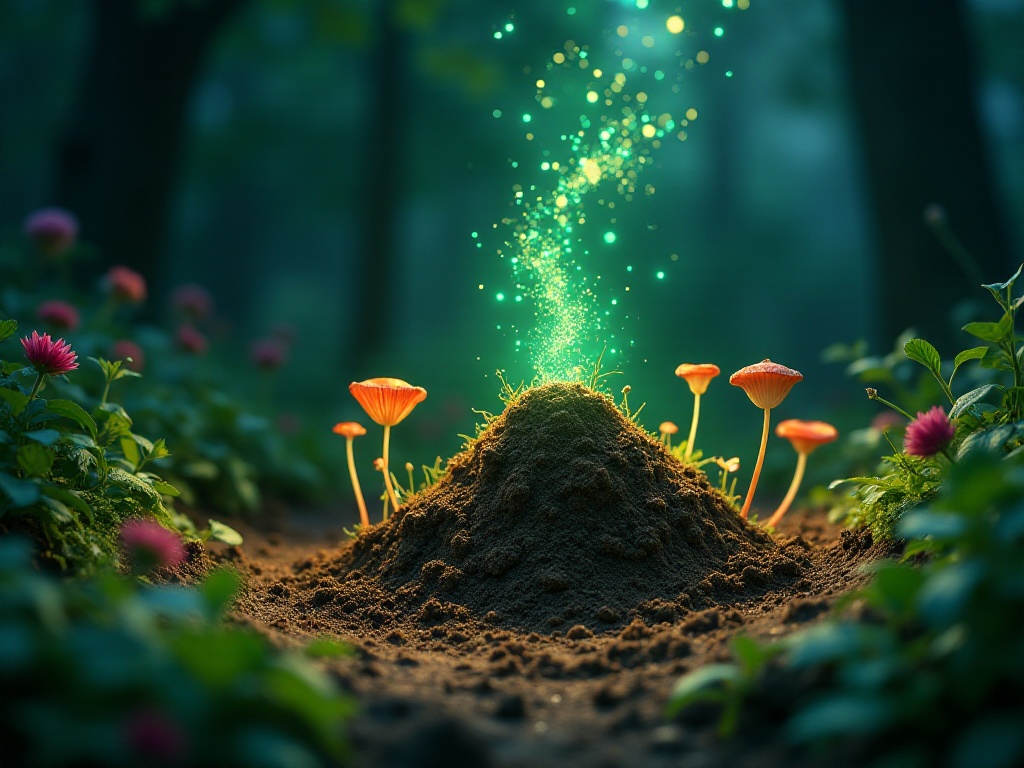Introduction
A few days ago while cleaning my room, I found my waste sorting notebook from last year and realized I've been living a zero-waste lifestyle for exactly one year. To be honest, when I saw data showing that an average Chinese person generates about 400kg of household waste annually, I was truly shocked. Just think about it - 400kg is equivalent to the weight of 5-6 adults! This number made me reflect: do we really need to create this much waste?
When I first decided to try zero-waste living, my friends thought I was crazy. They said: "How can you possibly not generate any waste in modern society?" "Aren't you just making life difficult for yourself?" But after a year of practice, I want to say: zero-waste living isn't as hard as imagined, and it has brought me far more benefits than expected.
Getting Started
At first, I was completely lost and had no idea where to begin. Then I thought, to make changes, I first needed to know what to change. So I conducted a simple but eye-opening experiment - waste auditing. I gave myself a week, prepared a notebook, and recorded every piece of waste I generated, including weight, type, and whether it was recyclable.
The process was admittedly annoying, but the results were shocking. My waste composition was: takeout packaging nearly 40% (wow, I ordered that much takeout!), food packaging 25% (snacks and drinks were terrifying), delivery packaging 15% (online shopping is a love-hate relationship), disposable items 12% (mainly wet wipes, disposable cutlery, etc.), and miscellaneous items 8%.
Seeing these numbers made me realize how environmentally unfriendly my lifestyle was. To better implement zero-waste living, I started frantically learning everything I could. I found local waste sorting guidelines online and learned in detail how to handle each type of waste; I also studied composting methods and even bought several books to learn from.
What touched me most was finding an online zero-waste living discussion group. There were many experienced practitioners who shared lots of practical tips and advice. Whenever I encountered situations I didn't know how to handle, I could always get good answers from the group. It made me realize I wasn't alone in changing my lifestyle, which was really heartwarming.
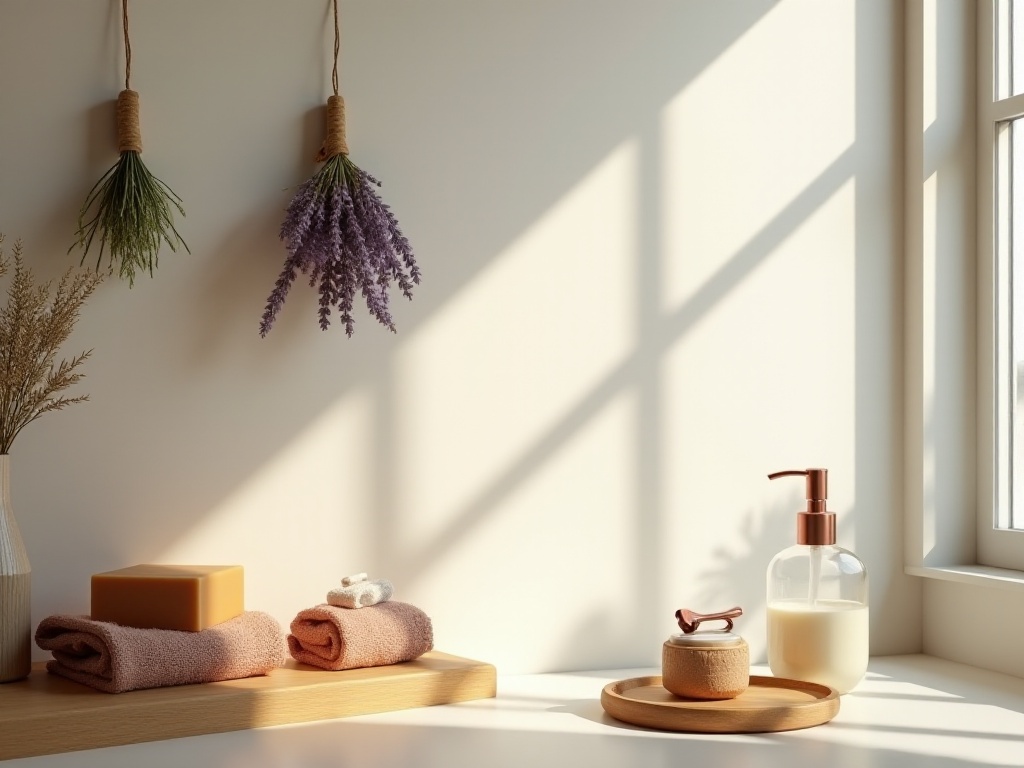
Kitchen Revolution
If I had to rank the areas with the biggest changes in zero-waste living, the kitchen would definitely take first place. I used to be a "takeout expert," ordering delivery almost every day, with my kitchen basically just for show. But through the waste audit, I discovered that takeout packaging made up a huge portion of my total waste, which forced me to rethink my eating habits.
To be honest, when I first decided to cook for myself, I was quite nervous. After all, besides cooking instant noodles, I really couldn't make anything. But for the sake of environmental protection, I had to bite the bullet and start learning. I found many simple recipes online and started practicing with basic stir-fried vegetables. There were definitely failures at first - things would be either too salty or too bland, and sometimes I'd burn the food. But through constant practice, my cooking skills actually improved gradually.
Now I've completely fallen in love with cooking. Every weekend, I bring my shopping bags and various containers to the nearby farmers' market. I remember the first time I brought glass jars to buy seasonings, the vendor looked at me strangely and asked if I was a foreigner (laughs). But now more and more people bring their own containers to the market, and many vendors have gotten used to it - some even offer discounts to customers who bring their own containers.
Speaking of ingredient utilization, I've become quite the "waste-to-treasure" expert. Food scraps that I used to think could only be thrown away now have new uses. For example, carrot leaves can be dried for tea, which tastes sweet and is rich in vitamins; cabbage stems can be shredded and stir-fried with meat; watermelon rind can be pickled after removing the green outer skin; fruit peels like apple and citrus can be dried for tea; and leftover food can be made into fried rice or soup.
Through this year of practice, I've found that cooking not only greatly reduces waste but also saves me a lot of money. I used to spend about 600-700 yuan per week on takeout, but now buying groceries and cooking costs around 200-300 yuan per week, and the food is healthier. Most importantly, during this process, I gradually found the joy of cooking. Seeing my cooking improve day by day brings a great sense of achievement.
I've also learned to make my own seasonings and sauces. For example, for garlic chili sauce, I mince garlic and chilies, add some salt and oil, store it in a clean glass jar in the refrigerator, and it lasts for a long time. Homemade seasonings are not only fresh and healthy but also avoid buying products in plastic packaging.
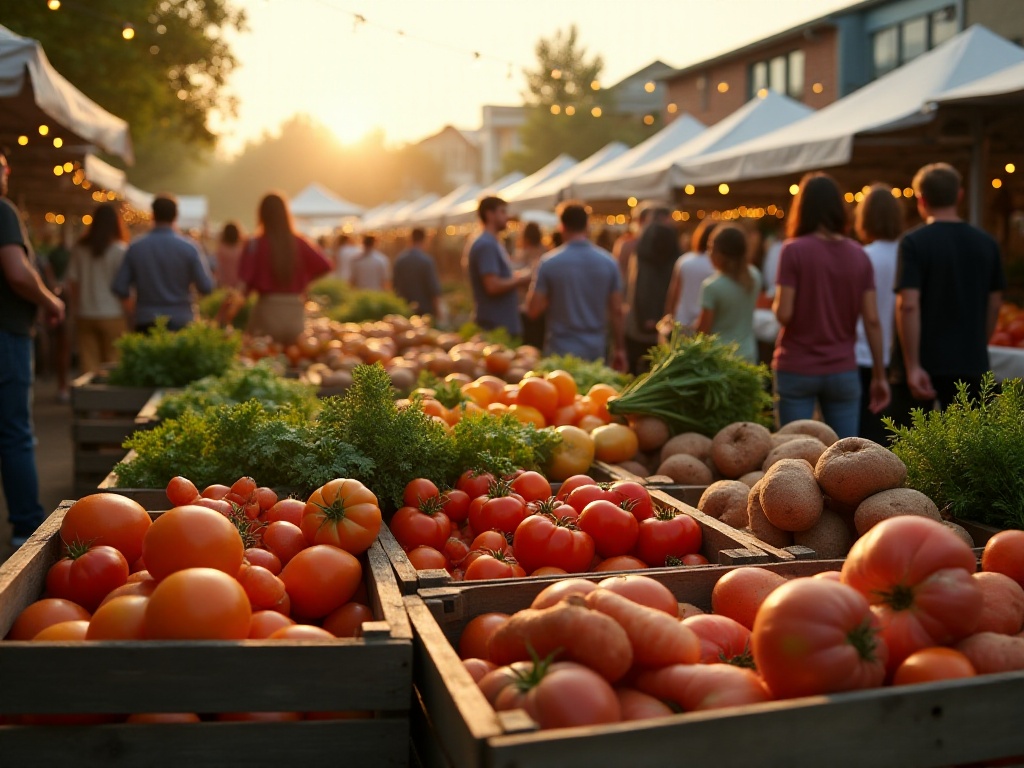
Lifestyle Transformation
Besides the kitchen, I've made many changes in other aspects of life. The most obvious is in personal care products. When I first considered switching to zero-waste personal care products, I was worried they wouldn't work as well. But after using them, I discovered these natural products work just as well as conventional ones, sometimes even better.
I now use solid shampoo and bath soap from an artisanal soap shop, saving at least a dozen plastic bottles over the year. There was definitely an adjustment period when first using solid soap, as it feels completely different from liquid products. But after sticking with it, I found my hair actually became more lustrous, and my previous dandruff problems disappeared.
For skincare, I also started researching natural formulas. Honestly, seeing those complex formulas online seemed really difficult at first. But later I discovered that basic skincare needs can be met with just a few simple ingredients. I now mainly use jojoba oil as a base oil, adding some essential oils to make a serum. Rose essential oil provides moisture and softening effects, while lavender essential oil soothes the skin.
These natural skincare products are not only good for the skin but also avoid creating plastic packaging waste. Plus, self-mixed skincare products can be adjusted according to seasons and skin conditions, which is perfect for my sensitive skin. However, I must remind everyone that if you want to try making your own skincare products, you must first understand the properties and usage methods of various ingredients, and it's best to do a patch test first to avoid skin allergies.
Speaking of clothing management, this might be the most surprising change. When I started organizing my closet last year, I couldn't believe my eyes: about one-third of my clothes were brand new, still with tags! Thinking carefully, these clothes were either impulse purchases or gifts that didn't match my style, ending up forgotten in the closet.
This discovery made me rethink my shopping habits. Now I carefully consider every piece of clothing I want to buy: Do I really need this? Does it match my existing clothes? Is the quality good, and how long will it last? Through this thinking process, my impulse purchases have significantly decreased.
I also discovered a great way to update my wardrobe - secondhand exchanges. Our neighborhood established a clothing exchange group where people can swap quality clothes they no longer use. This not only finds new owners for unused clothes but also lets you get items you need - it's a win-win situation.
Sometimes when I need specific styles for special occasions, I choose to rent rather than buy. For example, wedding guest dresses or highly seasonal items. This saves money and doesn't add to closet clutter. Most importantly, it reduces the environmental impact of clothing production.

Continuous Improvement
Honestly, the biggest challenge in zero-waste living isn't starting, but persisting. Throughout this year, I've experienced many moments of doubt and compromise. For instance, when work is particularly busy, I still order takeout; when I'm in a hurry, I sometimes accept plastic bags from stores. But I think perfect zero waste is an ideal goal - what's important is the continuous effort towards it.
My current approach is: if I absolutely can't avoid ordering takeout, I prioritize vendors using eco-friendly packaging and always bring my own utensils. For online shopping, I try to buy sufficient quantities at once to reduce delivery frequency. I also pay special attention to choosing sellers with minimal packaging, and some even offer reusable packaging, which I prioritize.
After a year of effort, my waste has decreased by about 60%. While I haven't achieved complete zero waste, I'm very satisfied with this progress. Most importantly, through this process, I've learned more about environmental protection and developed more eco-friendly habits.
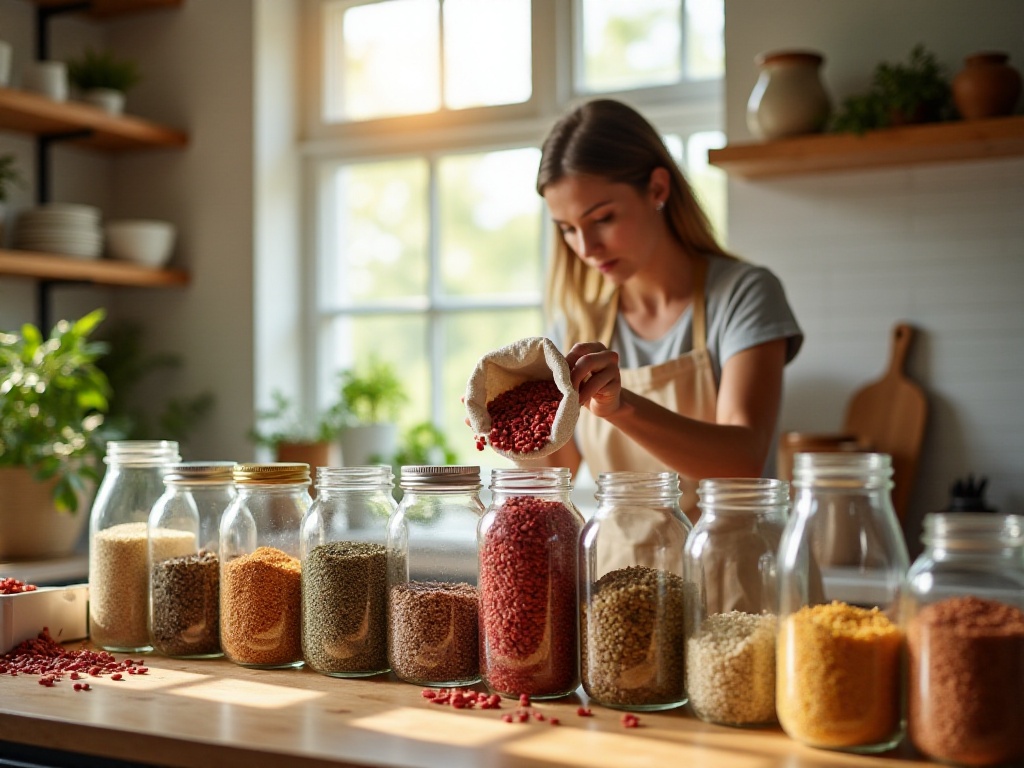
Future Outlook
Looking back now, choosing zero-waste living might be one of the best decisions I've made. It not only saved me money but also made my lifestyle healthier and more environmentally friendly. What touches me most is that during this process, I've met many like-minded friends, and we encourage each other and progress together.
According to relevant surveys, over 70% of post-90s generation express willingness to make more efforts for environmental protection. This data gives me particular confidence, showing that young people today are beginning to realize the importance of environmental protection. Moreover, as environmental awareness spreads, more and more businesses are starting to offer eco-friendly options, which will undoubtedly make zero-waste living easier.
Actually, zero-waste living isn't just a personal choice, it's a lifestyle attitude. It makes us rethink our consumption behavior and establish a harmonious relationship with the environment. Every seemingly small change can accumulate to create a huge impact. If you also want to start zero-waste living, why not begin with a small change, like bringing your own shopping bags or trying to use reusable water bottles. Perhaps this is the first step to changing the world.
Remember, zero-waste living doesn't require us to live an extreme lifestyle, but rather to live more wisely. It teaches us to cherish resources, care for the Earth, and makes our lives more meaningful. I believe that as time goes on, more and more people will join this movement, working together to create a better future.


